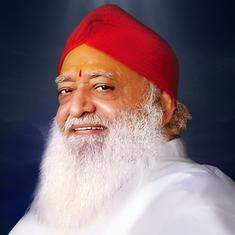Cauvery row: Over 2,000 arrested as farmers, political parties hold rail roko protests in Tamil Nadu
DMK leader MK Stalin led agitations in Chennai. Train services are likely to be affected during the 48-hour demonstration.
Police in Tamil Nadu arrested over 2,000 people on the first day of a two-day-long rail roko demonstration called to protest the state’s ongoing tussle over the sharing of Cauvery river water with Karnataka. More than 1,400 of those arrests were made in the Thanjavur district as farmers and members of political parties attempted to enter railway stations and block rail tracks, The Hindu reported. Those detained included Leader of Opposition and Dravida Munnetra Kazhagam Treasurer MK Stalin, as well as former Tamil Nadu Assembly Speaker R Avudaiyappan.
The agitation was organised to protest against the Supreme Court’s decision to stay its direction to the Centre to set up a Cauvery Water Management Board, The Times of India said. On Monday, a high-level team set up by the Centre to study the river basin said both states involved in the row faced water shortages. The committee filed its report in the Supreme Court today.
Besides state farmer groups, parties including the Tamil Manila Congress (led by GK Vasan), Congress, the Left, Vijayakanth's Desiya Murpokku Dravida Kazhagam, Vaiko’s Marumalarchi Dravida Munnetra Kazhagam, Thirumavalavan’s Viduthalai Chiruthaigal Katchi, Naam Tamilar Katchi, Manithaneya Makkal Katchi, Dravidar Kazhagam and others joined the rail blockade demonstrations.
The DMK has also called for an all-party meeting to discuss the water-sharing dispute. However, ruling party All India Anna Dravida Munnetra Kazhagam had said an all-party meeting will not be convened. Chief Minister J Jayalalithaa has been in hospital since September 22, and her portfolios are now being managed by Finance Minister O Panneerselvam.
The Cauvery issue escalated after the Supreme Court on September 5 directed Karnataka to release 15,000 cusecs of water from the Cauvery river to Tamil Nadu. It later modified its verdict and reduced the quantity to 12,000 cusecs, but the order had led to widespread protests by farmers in Karnataka, who had argued that the state needed the water more than its neighbour. The Siddaramaiah government in Karnataka had initially refused to comply with the apex court order, and had said releasing water to Tamil Nadu would leave no water for their own state.
#CauveryIssue : MK Stalin leads DMK's 'Rail Roko' demonstration in Chennai; protesters stop train pic.twitter.com/fHocfPtKXD
— ANI (@ANI_news) October 17, 2016
#CauveryIssue: VCK stages 'Rail Roko' protest in Chennai. pic.twitter.com/BoXGs8TlMg
— ANI (@ANI_news) October 17, 2016









